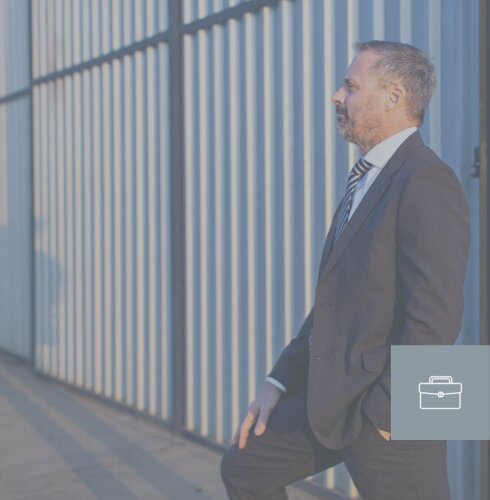Best Collaborative Law Lawyers in Worcester
Share your needs with us, get contacted by law firms.
Free. Takes 2 min.
Free Guide to Hiring a Family Lawyer
List of the best lawyers in Worcester, South Africa
About Collaborative Law in Worcester, South Africa
Collaborative Law is a relatively modern approach to legal disputes, focusing on negotiation and cooperation rather than adversarial courtroom battles. In Worcester, South Africa, Collaborative Law has gained attention as an effective means of resolving conflicts, particularly in divorce and family law matters. This method involves both parties working together, often with their lawyers and other professionals, to reach a mutual agreement without resorting to litigation. The peaceful atmosphere encourages open communication and typically results in more amicable solutions.
Why You May Need a Lawyer
There are several situations in which you might require legal help in the field of Collaborative Law. If you are considering or undergoing a divorce and wish to avoid a combative court experience, this approach may be for you. It's also suitable for resolving co-parenting arrangements, dividing assets, or dealing with business partnerships. Essentially, any situation that could benefit from a cooperative, problem-solving approach might benefit from Collaborative Law. A specialized lawyer can guide you through this process and ensure that all parties' interests are represented fairly.
Local Laws Overview
In Worcester, South Africa, Collaborative Law falls under the broader category of family law. South African family law supports alternative dispute resolution methods, including mediation and collaboration. Local regulations mandate that participants in Collaborative Law must be committed to open communication and transparency, recognizing that withdrawn issues will not be revisited in court should the Collaborative process fail. Lawyers involved in such cases must withdraw if the process ends without settlement, which emphasizes the non-litigious nature of this approach.
Frequently Asked Questions
What is the difference between Collaborative Law and traditional mediation?
While both approaches avoid courtroom litigation, Collaborative Law involves each party being represented by a lawyer throughout the process. Mediation often involves a neutral third party without legal representation for each side.
What happens if Collaborative Law fails?
If the Collaborative process does not result in an agreement, both parties must seek new attorneys to represent them in court, as their Collaborative lawyers can no longer take part in the case.
Is Collaborative Law quicker than going to court?
Typically, yes. By focusing on cooperation and negotiation, Collaborative Law often resolves disputes faster than traditional litigation.
Can any lawyer assist me in a Collaborative Law case?
No, it is important to have a lawyer who is trained in Collaborative Law processes to ensure they adhere to best practices and effectively facilitate negotiations.
What are the costs involved in Collaborative Law?
The cost can vary but is generally more predictable than litigation, as the process tends to be faster and avoid lengthy court battles.
Can Collaborative Law be used for non-family disputes?
Yes, Collaborative Law can be applied to other conflicts, such as business disputes and probate matters, provided all parties are willing to cooperate.
Will my Collaborative Law sessions be confidential?
Yes, confidentiality is a fundamental principle of Collaborative Law, ensuring open and honest communication during negotiations.
How is Collaborative Law different from litigation?
Collaborative Law emphasizes cooperative negotiation without going to court, whereas litigation focuses on presenting arguments to a judge, which is more adversarial.
Do I need to attend court in Collaborative Law?
Typically not. One of the main advantages of Collaborative Law is that it aims to resolve issues without court proceedings.
How long does a Collaborative Law process take?
The duration varies based on the complexity of the issues and the willingness of parties to negotiate. However, it can often be completed in a few sessions over several weeks or months.
Additional Resources
For individuals seeking more information or assistance, the Law Society of South Africa (LSSA) can offer guidance and resources. The South African Association of Collaborative Professionals (SAACP) is another valuable organization, providing information and resources about Collaborative Law practices. Additionally, consulting family law practitioners in Worcester who specialize in Collaborative Law can be helpful for personalized assistance.
Next Steps
If you are considering Collaborative Law for your dispute, the first step is to consult with a lawyer who specializes in this practice. Research and reach out to professionals in Worcester, South Africa, to discuss your case and determine whether Collaborative Law is suitable for your situation. Prepare yourself for open discussions, and be ready to actively participate in crafting an amicable solution. Remember, the goal is cooperation, and entering the process with a mindset focused on mutual benefit will be crucial to success.
Lawzana helps you find the best lawyers and law firms in Worcester through a curated and pre-screened list of qualified legal professionals. Our platform offers rankings and detailed profiles of attorneys and law firms, allowing you to compare based on practice areas, including Collaborative Law, experience, and client feedback.
Each profile includes a description of the firm's areas of practice, client reviews, team members and partners, year of establishment, spoken languages, office locations, contact information, social media presence, and any published articles or resources. Most firms on our platform speak English and are experienced in both local and international legal matters.
Get a quote from top-rated law firms in Worcester, South Africa — quickly, securely, and without unnecessary hassle.
Disclaimer:
The information provided on this page is for general informational purposes only and does not constitute legal advice. While we strive to ensure the accuracy and relevance of the content, legal information may change over time, and interpretations of the law can vary. You should always consult with a qualified legal professional for advice specific to your situation.
We disclaim all liability for actions taken or not taken based on the content of this page. If you believe any information is incorrect or outdated, please contact us, and we will review and update it where appropriate.









